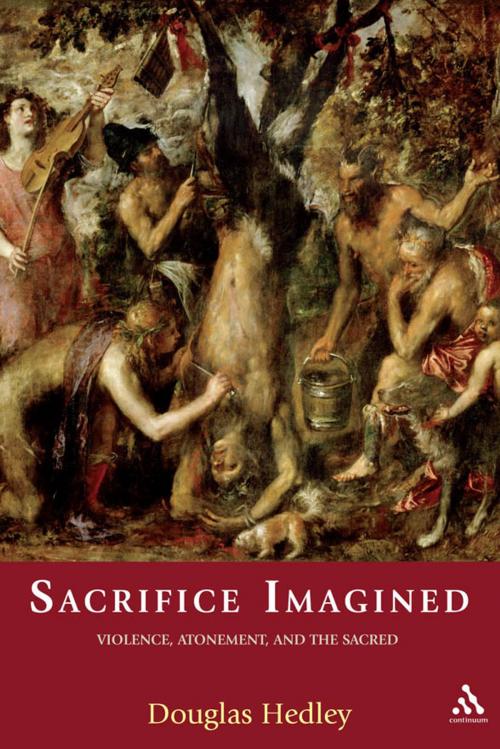Sacrifice Imagined
Violence, Atonement, and the Sacred
Nonfiction, Religion & Spirituality, Philosophy| Author: | Professor Douglas Hedley | ISBN: | 9781441104335 |
| Publisher: | Bloomsbury Publishing | Publication: | September 8, 2011 |
| Imprint: | Continuum | Language: | English |
| Author: | Professor Douglas Hedley |
| ISBN: | 9781441104335 |
| Publisher: | Bloomsbury Publishing |
| Publication: | September 8, 2011 |
| Imprint: | Continuum |
| Language: | English |
Sacrifice Imagined is an original exploration of the idea of sacrifice by one of the world's preeminent philosophers of religion.
Despisers of religion have poured scorn upon the idea of sacrifice as an index of the irrational and wicked in religious practice. Nor does its secularised form seem much more appealing. One need only think of the appalling cult of sacrifice in numerous totalitarian regimes of the twentieth century. Yet sacrifice remains a part of our cultural and intellectual 'imaginary'. Hedley proposes good reasons to think that issues of global conflict and the ecological crisis highlight the continuing relevance of the topic of sacrifice for contemporary culture.
The subject of sacrifice has been decisively influenced by two books: Girard's The Violence and the Sacred and Burkert's Homo Necans. Both of these are theories of sacrifice as violence. Hedley's book challenges both of these highly influential theories and presents a theory of sacrifice as renunciation of the will. His guiding influences in this are the much misunderstood Joseph de Maistre and the Cambridge Platonists.
Sacrifice Imagined is an original exploration of the idea of sacrifice by one of the world's preeminent philosophers of religion.
Despisers of religion have poured scorn upon the idea of sacrifice as an index of the irrational and wicked in religious practice. Nor does its secularised form seem much more appealing. One need only think of the appalling cult of sacrifice in numerous totalitarian regimes of the twentieth century. Yet sacrifice remains a part of our cultural and intellectual 'imaginary'. Hedley proposes good reasons to think that issues of global conflict and the ecological crisis highlight the continuing relevance of the topic of sacrifice for contemporary culture.
The subject of sacrifice has been decisively influenced by two books: Girard's The Violence and the Sacred and Burkert's Homo Necans. Both of these are theories of sacrifice as violence. Hedley's book challenges both of these highly influential theories and presents a theory of sacrifice as renunciation of the will. His guiding influences in this are the much misunderstood Joseph de Maistre and the Cambridge Platonists.















